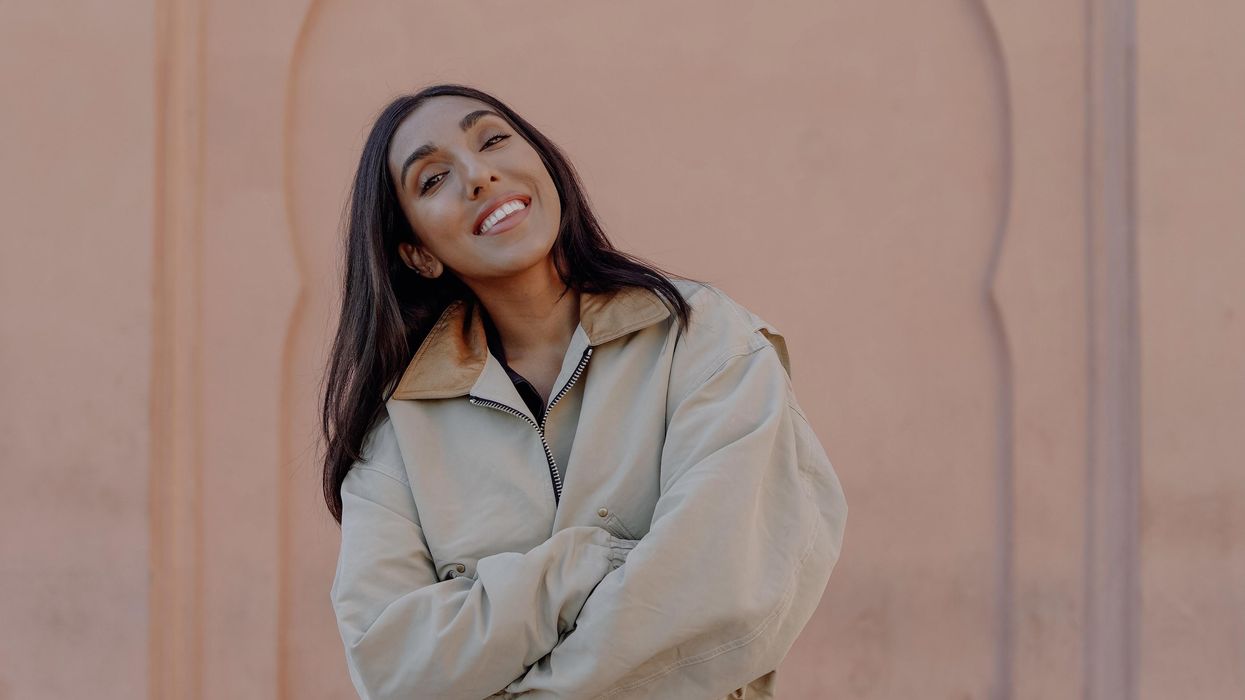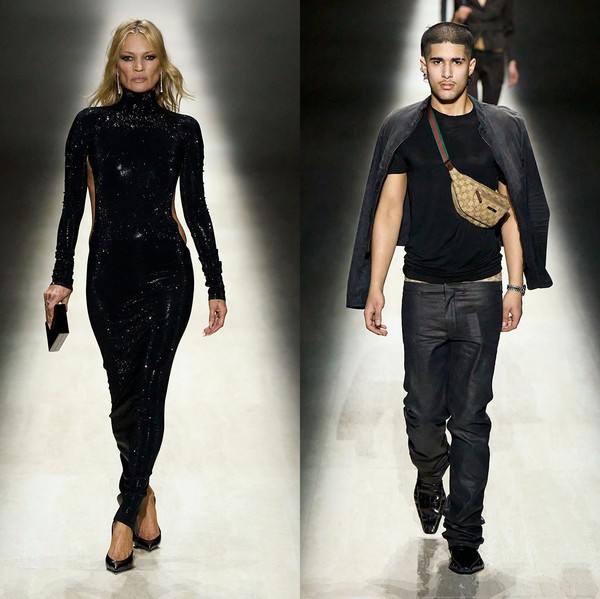How Rupi Kaur’s Mom Taught Her to Be Strong and Soft
“I always say that my mom is the strongest person I know.”

In honor of Mother's Day, we asked 29-year-old poet and author Rupi Kaur, who's currently on a world tour, to transport herself back home and reflect on the lasting impact that her mother has had on her. After immigrating from Punjab, India, to Canada at the age of three, she watched her parents immerse themselves in a new setting amidst language barriers and culture shock. Ahead, in her own words, Kaur explores her mother’s enduring resilience and how it has translated to her own life.
Getting ready was never a stressed-upon thing for my mom. She’d just get ready in the bathroom—no vanity or anything. She’s a lipstick and face powder woman—nothing more—and she’d really just put those on if there was an event to go to. I know that some of my friends had moms who would get up in the morning and had everything [together]. That’s so beautiful and sometimes I wish I had that so I could have learned to do my hair or something. I have two younger sisters and none of us have the "let’s try to be presentable" gene.
By never trying to change the way that any of us looked, my mom has always made us feel like we were beautiful. I feel very lucky for that because I know some of my friends growing up were pressured by their mothers to wear more makeup or look and dress a certain way. But that was never something that my mom did. It was not the outside that was stressed—it was strength and resilience and survival.
Growing up in an immigrant household where my parents were very working class, there was no concept of self-care. There weren’t any clear "I’m going to teach you how to love your body" moments, but I think there were a few particular things that stood out. There was always this idea that taking care of the inside [of our bodies] was a really big deal. As long as you take care of the inside through the food that you put in your body, it will show on the outside.
What we did a lot of, and it’s more of a community tradition, is massaging hair with oil. It’s so funny because on Instagram you see baby spa videos, but that’s what we would do. A baby pops out, and every day you give it a massage with a bunch of almond oil. Those were the self-care things I grew up on. Once a week, whether you wanted to or not, we’d sit down and my mom would rub oil into our hair. As a practicing Sikh, I no longer keep my hair long, but it used to be down to my knees. Hair is such a sacred thing in our culture. I stopped doing the massages when I went to university because I was like Who has time for that?, and when I’d visit home on the weekends, it would bother my mom so much. She’d be like, "Your hair needs so much help. Just come here!" Those two things were the ways that she showed me how to take care of my body.
Gurdwaras are our version of temples, which are located in almost every state in America. So every time I’m traveling, I try to hit up a gurdwara. It’s so community-based that it always feels like home. No matter where I am in the world I try to find that taste of home the way that my mom would when she went shopping for Punjabi food at the local Punjabi shops and whatnot. It’s such a nice feeling to know that when my people are nearby. My mom tells me these stories about how anytime my dad, who is a truck driver, had trouble on the road, he would pull into a gas station, go to a pay phone (they didn’t have cell phones back then), open the phone book, flip to "S" and find any name that said Singh because all Sikhs have that last name. You could call anybody with that last name, tell them that you needed help, and they would come right away. It feels really comforting to know that somebody will always have my back.
My mom has five sisters, but we were the only family who immigrated [from India]. We didn’t grow up with any blood relatives, so it was family friends and neighbors from the village who were the aunties, which is really nice. That way, it’s like everybody’s your mom. Whatever they say goes, and that was comforting. It’s sad that, perhaps, we’ll lose that as our generations continue to settle and grow here, but a couple of my friends have kids now and I’m their masi, which is what we call the mother’s sister. We have a name for every type of aunt depending on the relation. It also goes to show that you don’t need to be related by blood to treat each other like family.
I always say that my mom is the strongest person I know. My mom is hardcore solid, and she had to be. The loneliness that one would feel as an immigrant who is working class, doesn’t know the language, and a woman in the community who stayed inside the house all day, you had to be strong to survive because a lot of women didn’t. She is the epitome of what that strength looks like and not letting anything stop her or get in her way. Leaning into the healthiest kind of strength allows so much room for softness because they work together. My mom has the ability to hold both of those things inside of her—a trait I've learned to cherish and will continue to do so for years to come.




